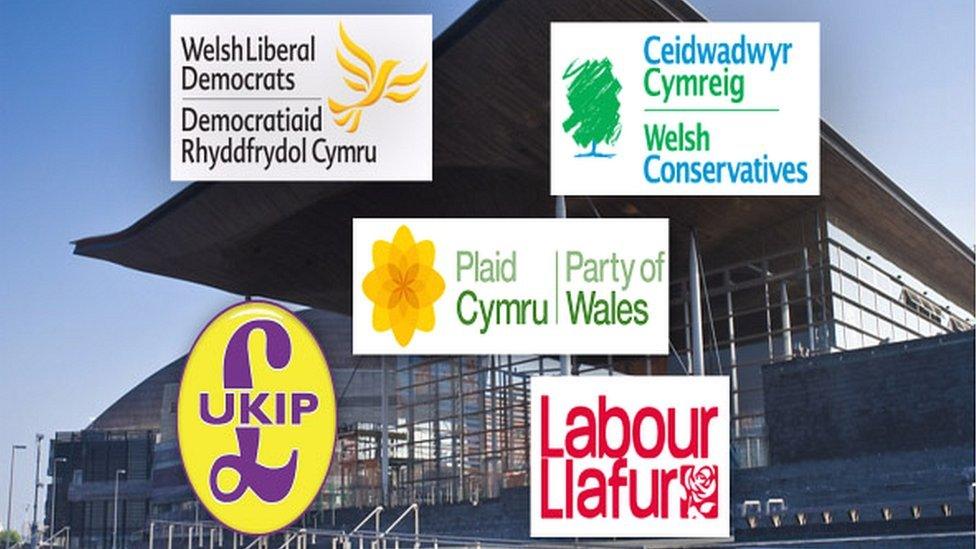Assembly election seats to watch: Wrexham
- Published
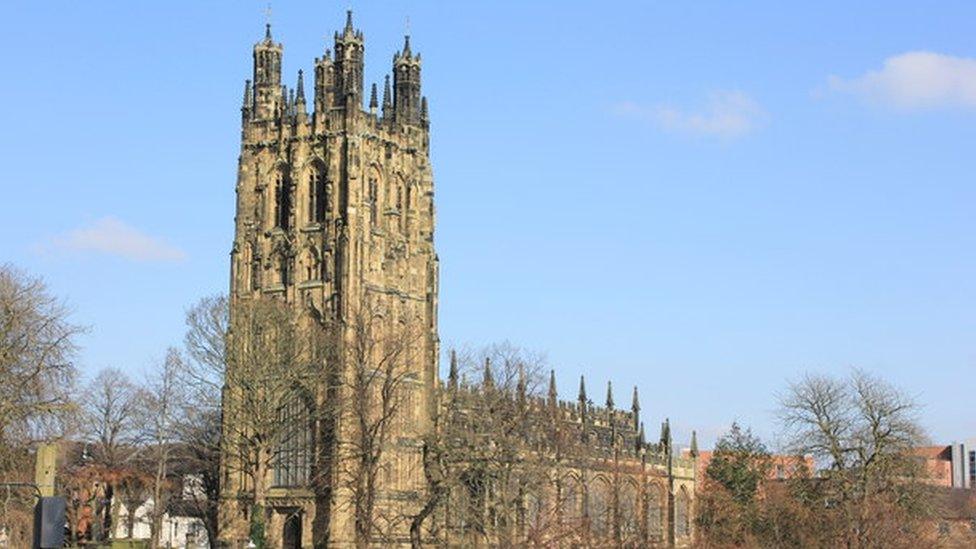
St Giles' Church, Wrexham
It might have seemed unlikely just a few years ago that the largest town in north Wales would become a Labour/Tory marginal, and that the Conservatives would be fighting a serious campaign to win the seat.
But after a strong performance from the Tories in last year's general election - Labour's majority was cut to under 2,000 - Wrexham is something of an emerging battleground.
In fact the Conservatives believe they're in with a chance of breaking Labour's dominance in the north east. Clwyd West aside, the four other seats in the region have been Labour at every assembly election since 1999.
Ministerial scalp
Wrexham might not be the number one Tory target, but if it does turn blue it'll be a sign on election night that things aren't going in Labour's favour.
The Conservative party would also score a ministerial scalp if they were to win - Labour communities and tackling poverty minister Lesley Griffiths is defending an assembly election majority of 3,337 seats.
Speculation about the Tories' north Wales chances in at the assembly election was sparked by their surprise general election win in the Vale of Clwyd.
There Labour lost to Conservative GP James Davies in a razorsharp result - with just 237 votes between them.
In Wrexham itself the Conservative party's Andrew Atkinson squeezed Labour down to a majority of 1,831.
The result led the Tories to feel bullish about a range of seats for the assembly, including the one held by Ms Griffiths as well as Delyn.
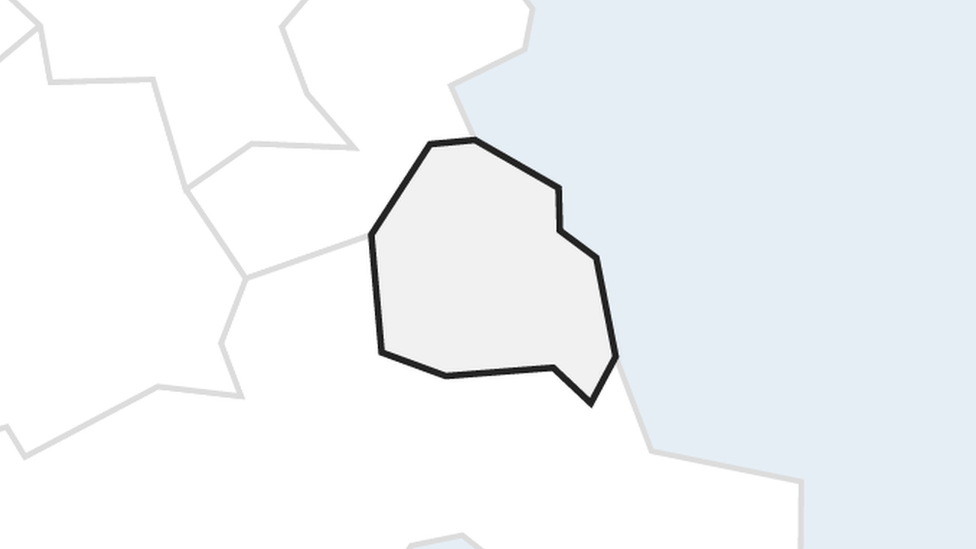
Wrexham constituency
The Tories are targeting the seat again with the same candidate, and the party's manifesto launch in the town is a signal of how serious the Conservative campaign is.
Labour is also taking the Tory threat in the region seriously, demonstrated by the recent push for a specific set of regional pledges and early promises of an upgraded transport network for north east Wales.
One big issue locally is health - particularly given some of the bad news stories in recent years that have come from Betsi Cadwaladr University Health Board, which runs health care across north Wales.
The Welsh Government put the board in special measures following the emergence of a report that alleged neglect at the Tawel Fan mental health ward at Ysbyty Glan Clwyd.
Progress is said to have been made since then, but the state of the health board still dominates political debate.
'Really bad night'
Professor Roger Scully of the Wales Governance Centre said: "There is a feeling in both the Conservative and Labour parties that Labour are potentially vulnerable in the north east of Wales."
The Labour-held seats of Vale of Clwyd, Delyn, Clwyd South and Wrexham would all need "significant, not completely ridiculous swings" for the Conservatives to capture them from Labour, he added.
"I think certainly a month or two ago serious people in the Labour party were getting very worried about those seats," said Prof Scully.
Conservative troubles over the last few weeks "have eased those concerns somewhat, but not entirely", he added.
"It is not at all implausible to imagine the Tories possibly winning one of those - if they were having a really good election and Labour a really bad one, possibly winning all four of them."
But Prof Scully said Wrexham in particular would need a "fairly substantial swing, which is certainly beyond anything we're seeing in the national polls at the moment".
Candidates in the seat are:
Welsh Conservative - Andrew Atkinson
Welsh Liberal Democrat - Beryl Blackmore
Wales Green Party - Alan Butterworth
Welsh Labour - Lesley Griffiths
Plaid Cymru - Carrie Harper
UKIP Wales - Jeanette Bassford-Barton
Results on the night itself can be found here.
- Published19 April 2016
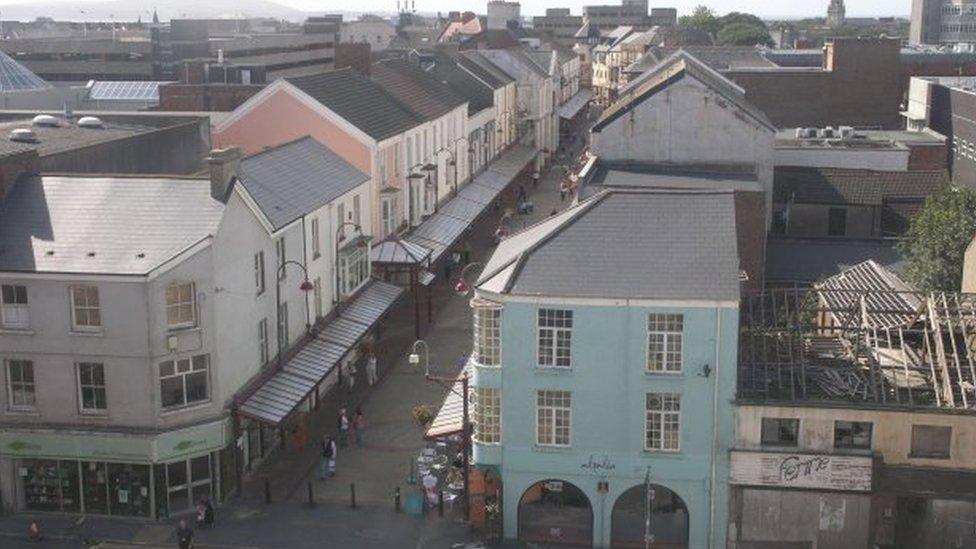
- Published17 April 2016
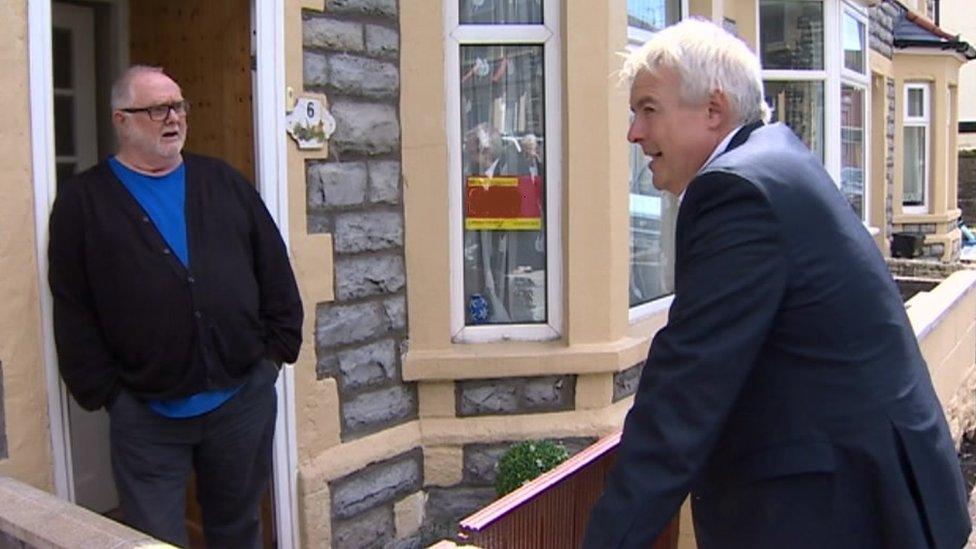
- Published11 April 2016
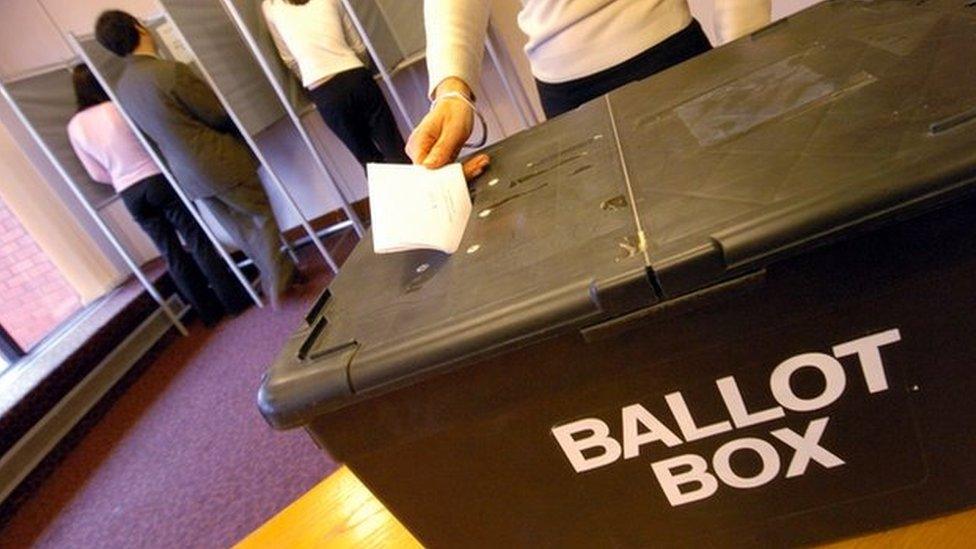
- Published3 April 2016
